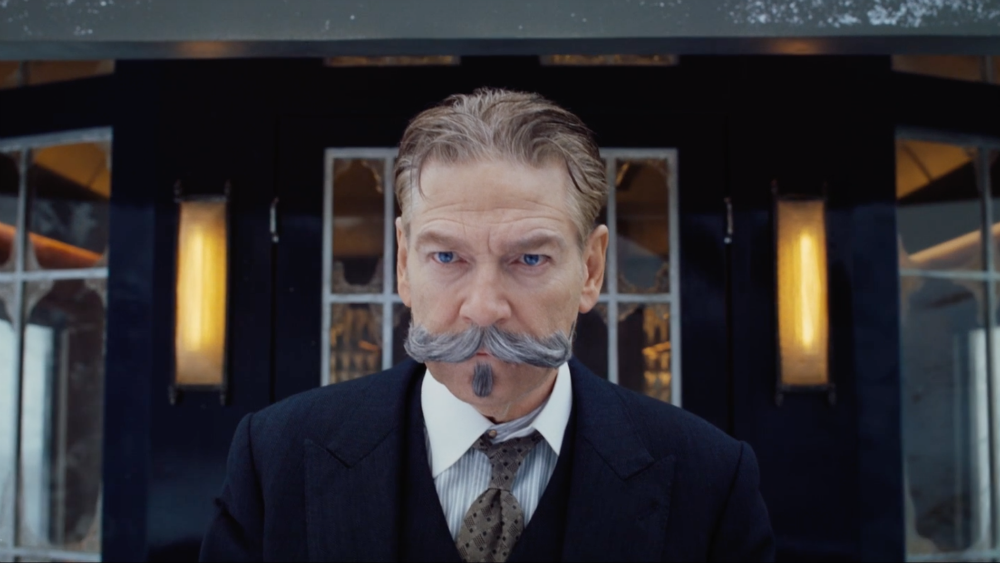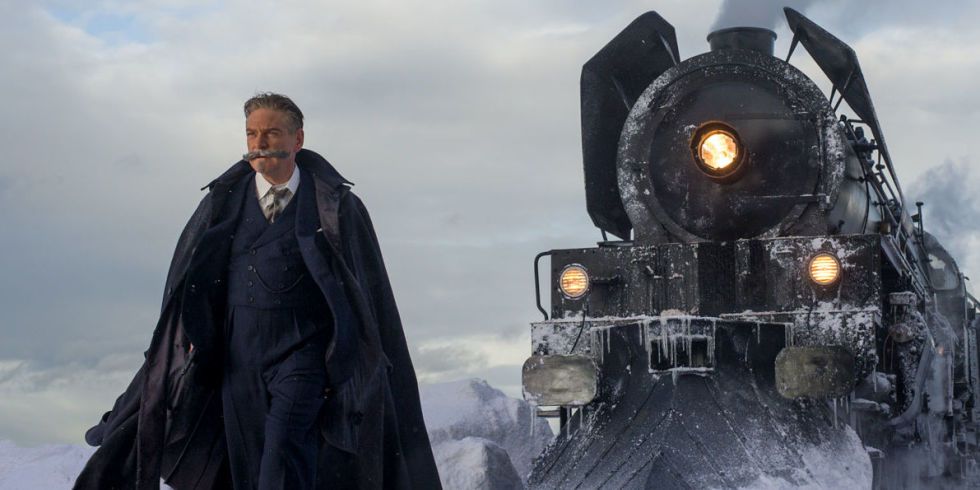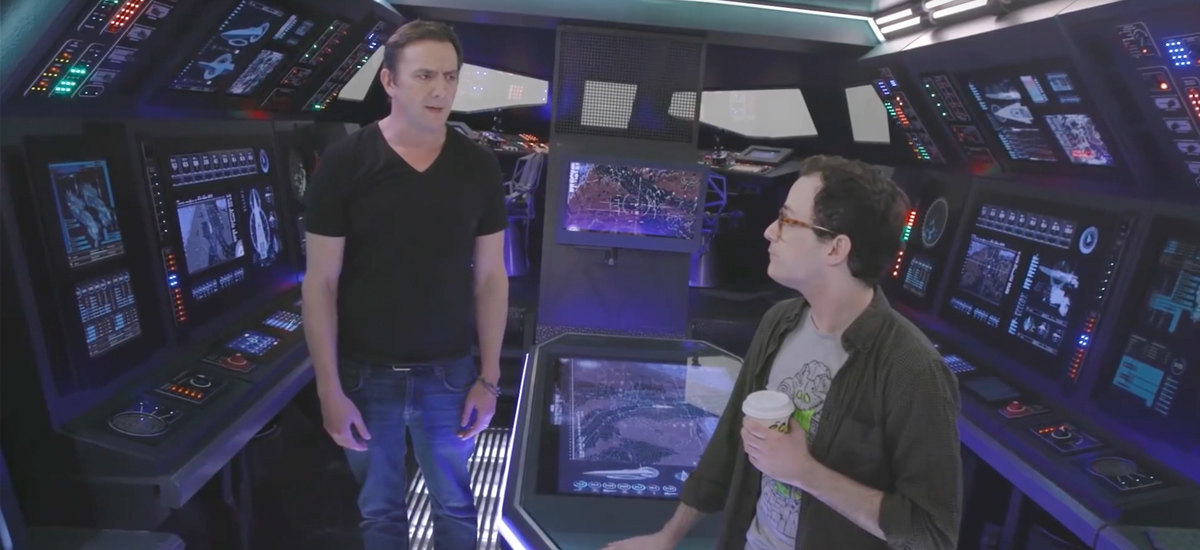Agatha Christie is one of the most esteemed murder mystery authors of all time and her 1934 novel, Murder on the Orient Express, is considered by many as one of her best. It features the acclaimed detective Hercule Poirot, who appeared in a total of 33 novels. He has been previously played by countless actors over the years, including Albert Finney, Peter Ustinov and David Suchet. Now, Kenneth Branagh is not only directing the latest version of the story but also assuming the lead role.
Our story begins with a short tale at the Wailing Wall in Jerusalem that introduces us to the great detective Hercule Poirot. His deductive skills have always been a bit far-fetched but not any more than Sherlock Holmes. You must look past the unbelievable in these types of mysteries and simply enjoy the moment. And we’re given much to enjoy for most of the film. Poirot finds himself embroiled in the middle of a murder mystery aboard the Orient Express train. When suspected crime boss Edward Ratchett (played by Johnny Depp in a low-key performance) is found murdered, the suspects pile up towards an eventual climax as Poirot is allowed to display his detective skills while interacting with a seemingly unrelated assortment of odd characters. From a princess to an American, a religious woman to a proud German, it seems as if none of these people would have anything in common. Yet, they are all on the same train on the same voyage.
Classic murder mysteries are, by nature, slower paced and may seem at odds with current filmmaking. In an age where so many films are fast-paced and, too often, bombastic affairs, it is actually enjoyable to see this older style of filmmaking return to the forefront at the box office during a major holiday season. Branagh generally succeeds in weaving an enjoyable tale but it gets derailed towards the final act. No spoilers here but when the big reveal happens, the biggest obstacle is for the viewer to feel sympathy towards either the victim or the killer, neither of which really happens here. The supporting characters are mostly victims of stunt casting and their characters are almost caricatures that seem a little dated in some regards. That said, the cast is one of the strong points in the film with Kenneth Branagh turning in a good performance as Hercule Poirot, despite an obviously bad moustache (more on that in a moment). I wouldn’t mind seeing more of him in the future. Everyone else is in supporting roles with some being given more to do than others. From Daisy Ridley and Willem Dafoe to Judi Dench and Josh Gad, the large cast is a pleasure to watch. I was glad to see Michelle Pfeiffer back on the screen and especially pleased to see Johnny Depp in a restrained role.
That said, the cast is one of the strong points in the film with Kenneth Branagh turning in a good performance as Hercule Poirot, despite an obviously bad moustache (more on that in a moment). I wouldn’t mind seeing more of him in the future. Everyone else is in supporting roles with some being given more to do than others. From Daisy Ridley and Willem Dafoe to Judi Dench and Josh Gad, the large cast is a pleasure to watch. I was glad to see Michelle Pfeiffer back on the screen and especially pleased to see Johnny Depp in a restrained role.
There has already been much conversation around Hercule’s moustache. Quite simply, it is wrong and not as Agatha Christie described it in her novels. It doesn’t match any previous incarnation of Hercule Poirot on screen before and I’m puzzled as to why Kenneth Brannagh chose to deviate so much from the source material. Murder on the Orient Express
Murder on the Orient Express
benefits from the wonderful use of CGI, adding details to the scenery and expanding upon the created world we see on screen. Rather than just have snow blocking the train’s progress, we’re treated to an avalanche that leads to an eventual train derailment. However, that derailment results in a rather unbelievable sequence that goes unchallenged. Just how are a handful of men supposed to lift the train engine back onto the tracks with a minimal amount of tools? The answer is they can’t but it happens nonetheless. Sure, the avalanche caused an exciting series of visuals but the end result threw me out of the moment a little. A minor quibble I suppose but something that puzzled me all the same.
The film also benefits greatly from excellent detail being put towards all aspects of the train and its inhabitants. I truly believed I was in 1930s Europe and the music used throughout the film blended in well…until the closing theme. An incredibly odd choice was made in the song played over the beginning of the end credits. Michelle Pfeiffer has a beautiful voice and the song isn’t half bad but so out of sync with the rest of the film and the time period in which it is set. I wish they would have stayed with the music that comes on after that and which is heard in the rest of the film.
Murder on the Orient Express is worth the time to experience in the theater so that you can enjoy the 65-millimeter format, which is visually stunning. The film isn’t perfect and might be too slow for some of today’s audiences but none of the flaws entirely ruin the film. Rather, it just gets off track from time to time and the trip could have been a little smoother. That said, I do hope we see more of Branagh’s Hercule Poirot…somebody just needs to give the man a shave.



